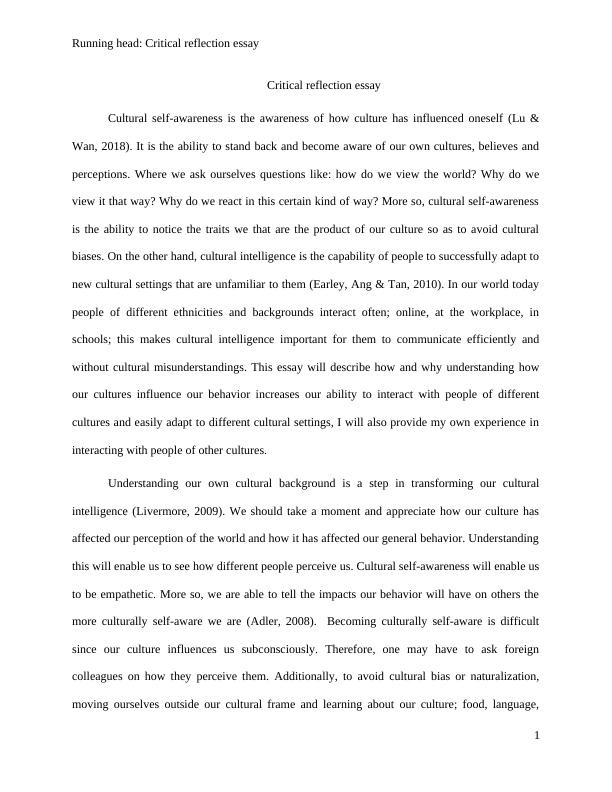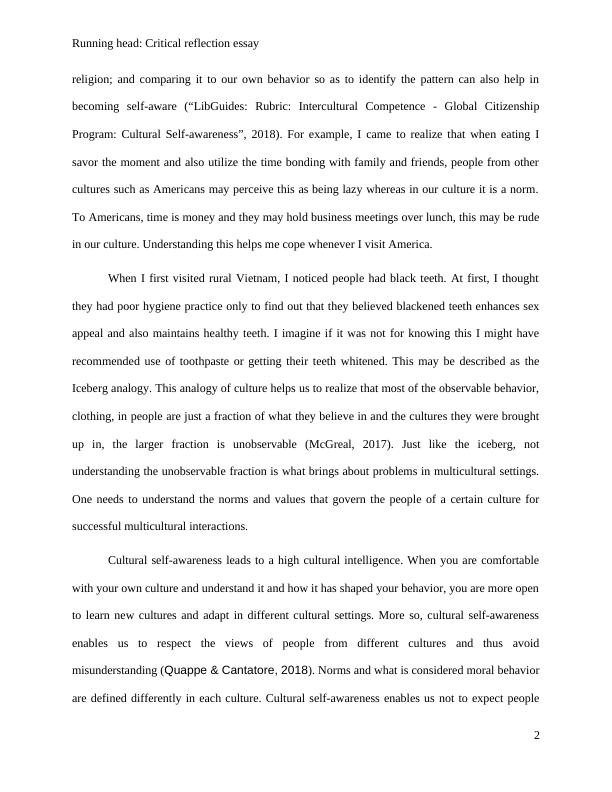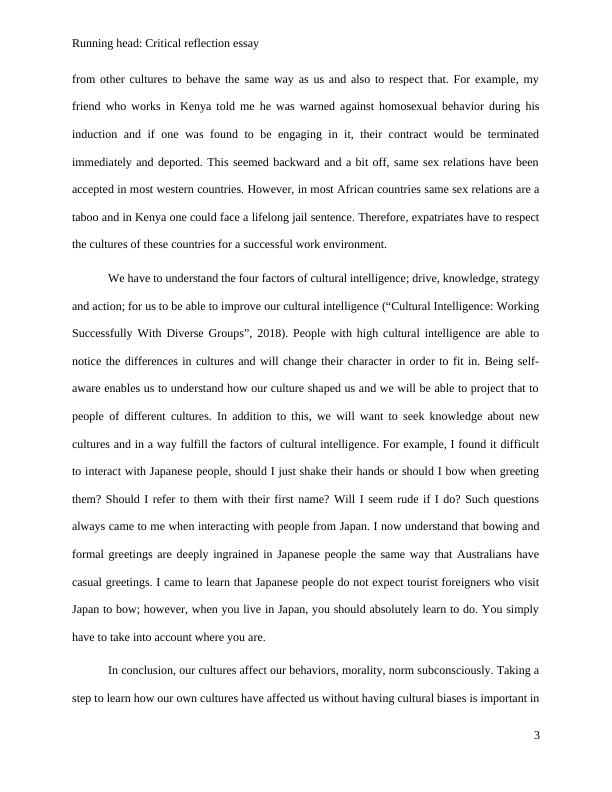Cultural Self-Awareness and Intelligence: A Critical Reflection Essay
This essay is a critical reflection on the importance of self-cultural awareness in developing cultural intelligence.
6 Pages1531 Words210 Views
Added on 2023-06-13
About This Document
This essay explores the importance of cultural self-awareness and intelligence in interacting with people of different cultures and adapting to different cultural settings. It provides personal experiences and insights on how understanding our own cultural background can increase our ability to interact with people of different cultures.
Cultural Self-Awareness and Intelligence: A Critical Reflection Essay
This essay is a critical reflection on the importance of self-cultural awareness in developing cultural intelligence.
Added on 2023-06-13
ShareRelated Documents
End of preview
Want to access all the pages? Upload your documents or become a member.
Emotional Intelligence and Cultural Diversity Essay 2022
|14
|1884
|11
Importance of Cultural Self-Awareness in Developing Cultural Intelligence
|6
|1474
|288
EDFD140: Foundations of Learning - Self-Learning Portfolio
|16
|2476
|225
Dynamic Leadership: Theoretical Analysis and Coaching Practices
|19
|5218
|206
Self and Identity: Understanding Self-Concept and Social Identity
|11
|2565
|119
Reflective Writing on a Residential Trip
|12
|3698
|75



